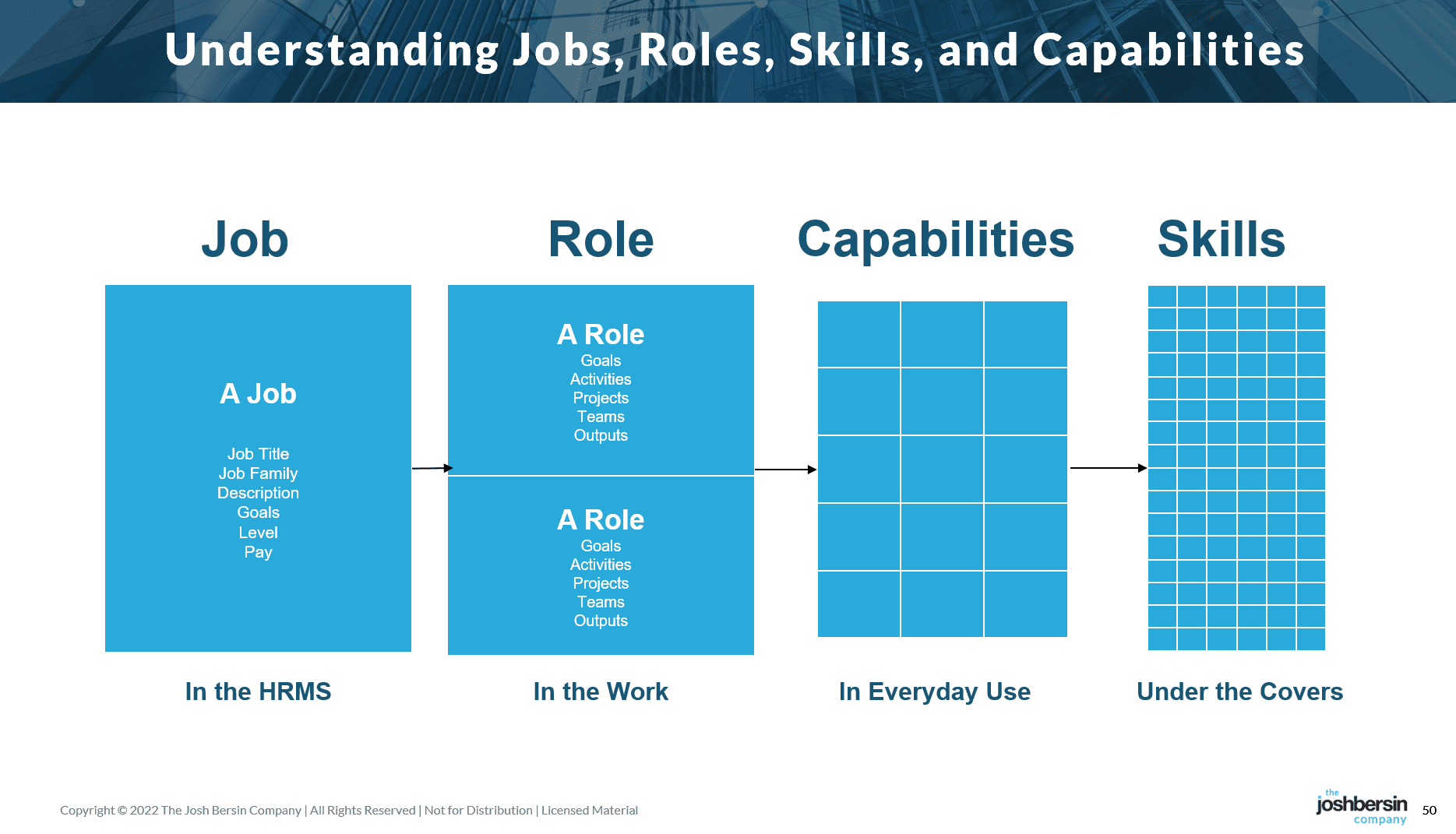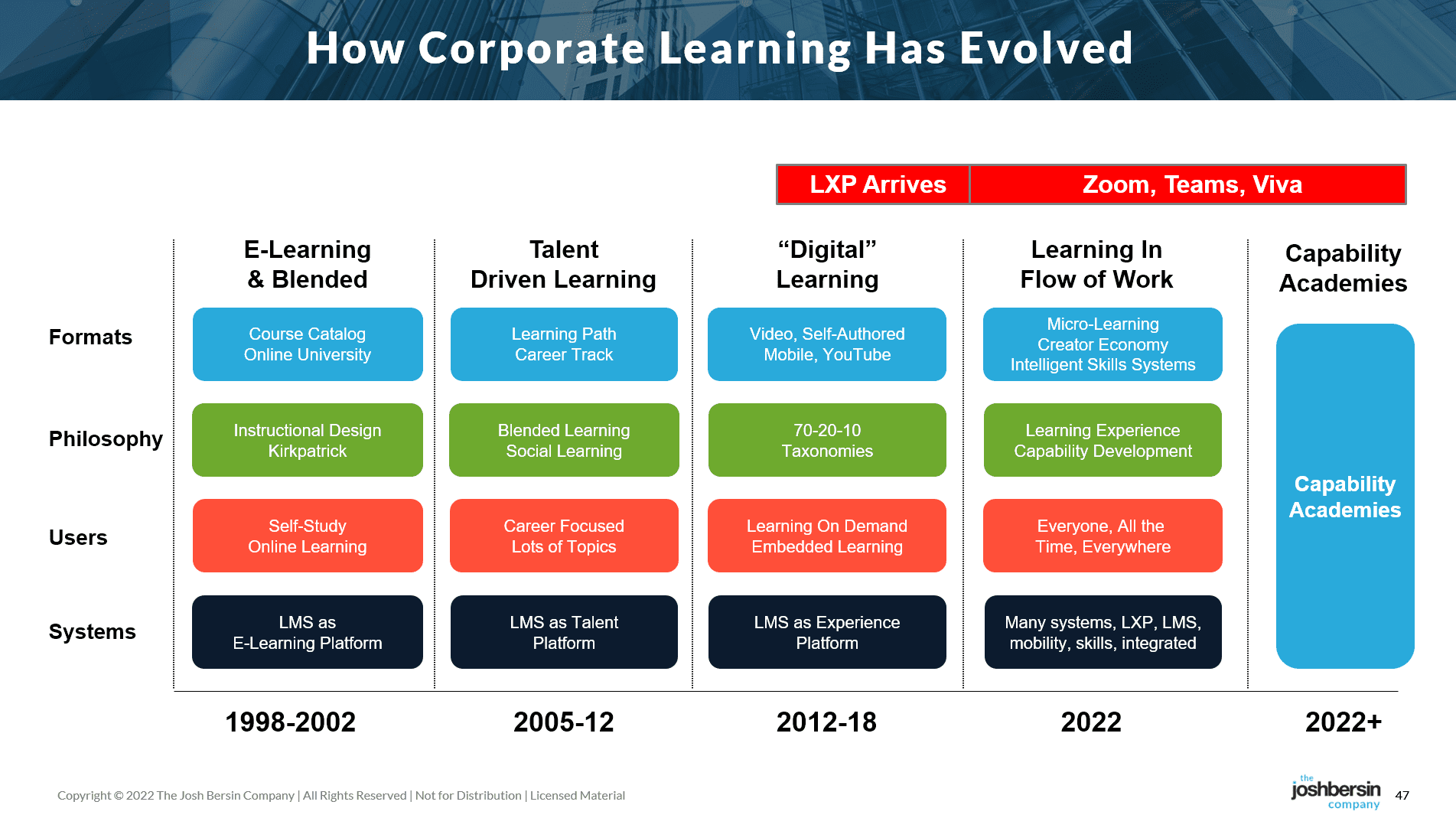Degreed Returns To Its Roots: Acquires LearnIn, Founder Returns As CEO
If anyone ever tells you it’s easy to build a startup software company, don’t listen to them. That’s the story of Degreed, one of the darlings of the corporate learning industry, now going through a rebirth as the market continues to change.
Let me tell you the story.
About a decade ago, three companies (Degreed, Pathgather, and EdCast) pioneered the market for Learning Experience Platforms. These systems, which were groundbreaking at the time, allowed corporate training departments to “unlock” the content they stored in their learning management systems and give everyone in the company access to learning. It was a very good idea.
In the early days of the market these companies grew like weeds (Pathgather was acquired by Degreed). Nearly every corporate training manager decided they wanted an LXP, encouraging every learning vendor to jump in. Cornerstone introduced a “free” LXP, Skillsoft launched Percipio, LinkedIn launched LearningHub, and then Microsoft introduced Viva Learning.
This market, that of the LXP space itself, became a fast-growing $500M space, and almost every content and technology vendor wanted in. Even Workday Learning, which now has more than 1000 customers, was designed around the LXP idea, and vendors like Oracle and SAP have built or acquired systems that meet this need.
Degreed, meanwhile, continued to grow. While the company has been the thought leader in the market, the competition started to get fierce. So about two years ago Degreed CEO Chris McCarthy left the company and Degreed brought in a new CEO (Dan Levin). The purpose was to scale: with around 400 large corporate clients Degreed was “too big to fail,” but not big enough to compete with many of the enormous players now in the space.
Competition Gets Fierce
As I learned many years ago at Sybase, the software business is war. If you read Sun Tzu (The Art of War), which is mandatory reading in Silicon Valley, you know that no matter how good you are, someone is always trying to catch you by surprise. So EdCast, Degreed’s single largest competitor, started to do some shrewd things.
First, EdCast built a skills engine that was more advanced and more open than Degreed. This caught the company by surprise, given that Degreed wrote a book on Skills-Based Learning. Then EdCast acquired a content company and started to build LMS features. And sure enough, EdCast started winning deals.
Degreed turned around and acquired a small company Adepto, deciding it was going to get into the talent mobility space. While this sounded like a good idea, it extended the company into many new areas, forcing Degreed to rationalize its strategy. While Degreed’s LXP is a great product, moving into talent mobility and career management was complex. The product roadmap slowed down.
Then the next big step occurred. EdCast, which saw Microsoft and LinkedIn as competitors, sold itself to Cornerstone, a billion-dollar company with 20,000+ customers. Degreed, which started as the market leader, suddenly found itself surrounded by competitive giants.
What’s Next
Well Degreed has made its move.
Today Degreed announced the acquisition of Learn In, a small vendor building a “talent academy” platform modeled after a lot of our research on Capability Academies. And in addition to this, the company is bringing back David Blake (the original Degreed founder) as its CEO.
What is this all about?
Well Learn In, which is still a small company, is building a platform for what we call Academy-based learning. In other words, it’s not enough to develop a “skill” to make your company grow. People need to build what we call Capabilities (this is why we call them Capability Academies), and a true Capability is developed in many ways.
 |
(If you want a real-world example of capabilities, check out our Global HR Capability Project, and you can assess your own capabilities.)
Consider, for example, how a company like Capital One builds cyber security experts in IT. They don’t just take a course in Cyber: they do projects, they may take developmental assignments, and they may even be assessed by their peers. What Learn In is trying to do is build a platform to connect all these moving parts.
As I’ve talked about for several years, the Capability Academy approach is the next big thing in corporate training. While many learning programs are “skills-based,” most big transformations take place when a person can learn, do, and grow. In fact, our new L&D research (coming out this summer) will show you how big this “Grow” problem really is. We don’t just want people to learn new skills: we need them to take on new projects, new roles, and new careers.
 |
Can Degreed pull this off? They’re certainly going to give it a try. Learn In (Degreed) believes it can build what we used to call a “program management platform” that assembles content, manages cohorts, and handles the e-commerce and tuition reimbursement for third-party programs. It’s kind of the nirvana idea that every major training manager wants: it’s just complicated and requires lots of technology and tools.
The initial offering is called its Talent Academy Platform, and it is designed to create curricula, programs, and support tuition reimbursement and administration. (Sound’s a little bit like an LMS, doesn’t it?) These are all valuable features, and I would guess many Degreed customers will want them.
I position these tools as “Program Management Platforms,” and it’s a fairly crowded space. In addition to systems like Cornerstone and Docebo, vendors like Intrepid, Modal.io, NovoEd, Nomadic, and many others play here. It will be up to Degreed to figure out how to build something creative that stands apart.
More To Come
I applaud Degreed (and Learn In) for leveraging a lot of our research to move in this direction. It’s a clear market need and one with lots of complexity to consider. With David Blake back leading the company, you can be sure there will be more excitement ahead.
Additional Resources
The Capability Academy: Where Corporate Training Is Going


